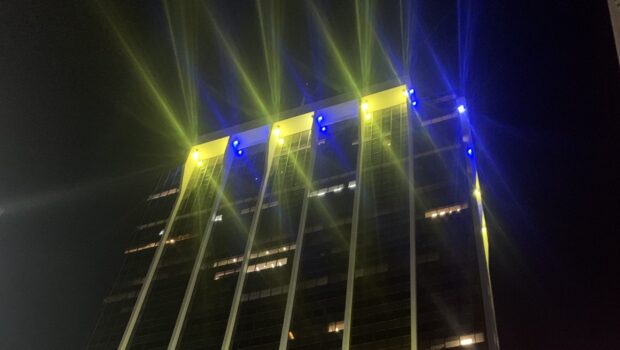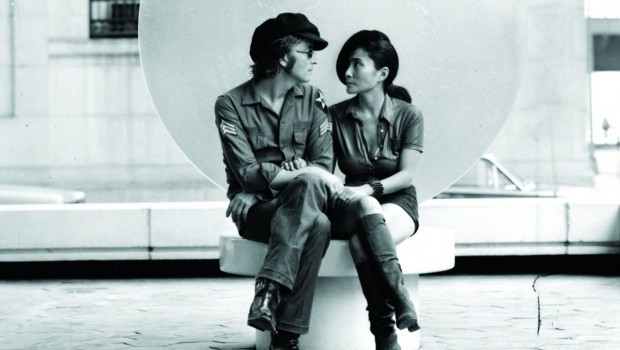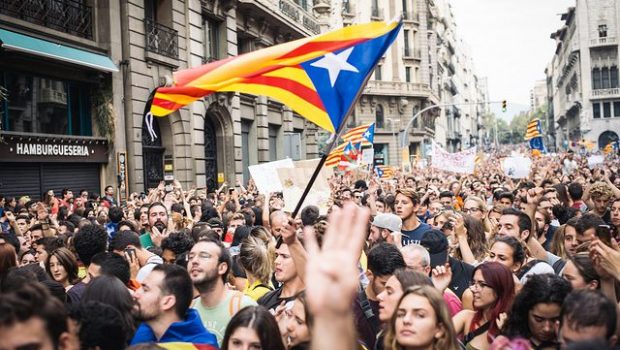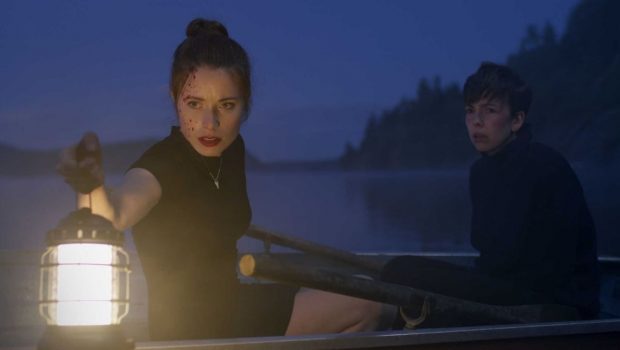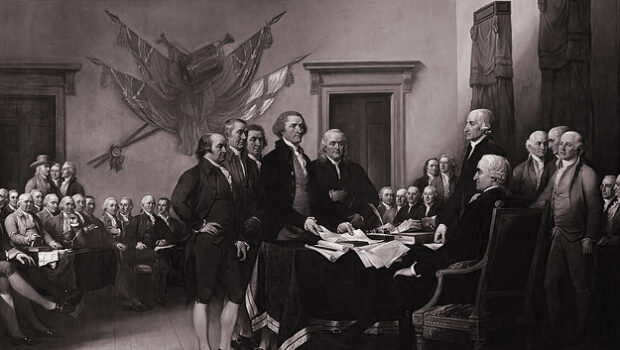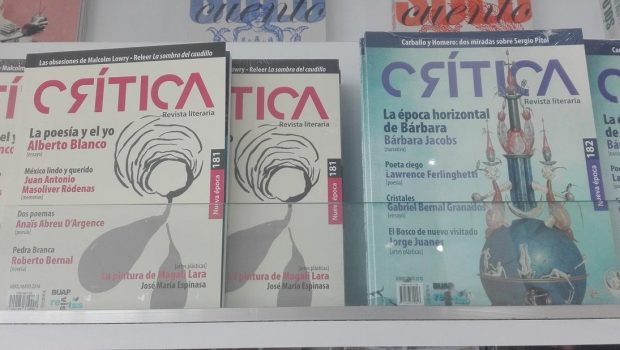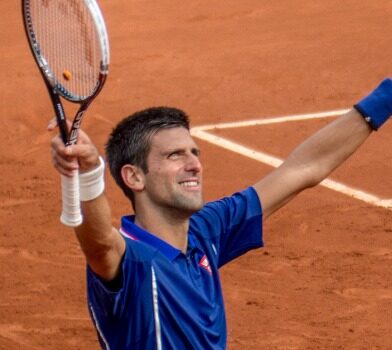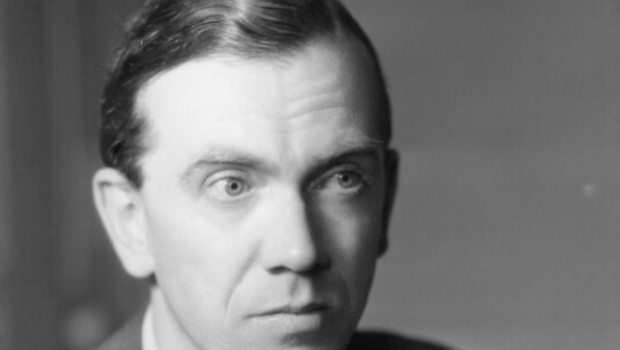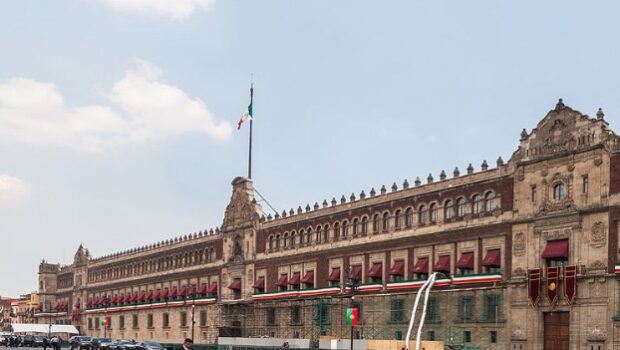War
Guerra
Adriana Díaz Enciso
Nothing like the threat of an all-inclusive third world war (i.e., with nuclear weapons) to make a deadly and devastating pandemic seem almost insignificant. The human mind is odd. Its mechanisms for processing reality help us survive, but don’t necessarily follow logic. I don’t know about you, but to me, news of the pandemic right now feels as if belonging to a rather remote past, despite the fact that we’re still in it. Though currently there are in the UK more confirmed Covid-19-infected people than in any other moment since the beginning of this ordeal, it’s as if my mind refused to keep on registering that alarm signal.
No face-mask will protect you from bombing.
***
On the 9th of March I’m admitted at Chase Farm Hospital, in north London, for a gallbladder operation. I refused to watch the news since the night before, but I found them anyway in the waiting room—in a big screen, the crowd of refugees in the Polish border.
I had developed an unsound, disproportionate fear of the operation, which is a rather simple procedure. I wake from the anesthetics extremely anxious. The nurses tell me that sometimes it’s like that. During the first hours of recovery, I am plagued by the darkest thoughts: what is the point in waking from anesthetics, surviving whatever kind of operation, if we come back to a world in war, to this unspeakable brutality?
Little by little my spirits start lifting. Doctors and nurses help me recalibrate the relevance of the appreciation of life. While a deranged man is focused on killing, destroying, terrorizing, the staff in this and numberless hospitals in the world are devoted to the care and preservation of life, which they do with acceptance and dignity, though they also feel the fear, the outrage, the sadness. The nurse who comes to check my blood pressure at 2 a.m. says that she has told her husband she won’t watch the news anymore; she can’t bear it. ‘Why?’, she says, regarding the invasion of Ukraine. ‘There’s no reason. We’re all going to die and we won’t take anything with us. We go to the earth.’ And she moves her hands as if for digging.
That’s the tragedy of the Putins in this world. That they can’t understand this indisputable truth.
***
The next day I see the glowing light outside the window. White smoke billows slowly from the chimneys in a couple of outbuildings, then dissolves over the still leafless trees. The golden veil of a beautiful morning at the end of winter stretches across the fields in the distance. Three regularly spaced trees stand very still, like sentinels, in the nearby field. A bird is flying low. From here I cannot make out what it is—only its breast’s white brushstroke as it turns in the air.
***
We wonder over and over whether Vladimir Putin is really deranged. Isn’t the answer obvious? Who can unleash this atrocious suffering over millions of people, with no justification, and be in his right mind? Look at him, sitting alone at one end of his ridiculous kilometric tables, his interlocutors meters and meters away. Doesn’t that image say it all?
Perhaps I’m awfully naïve, but to me, an unquestionable sign of his insanity is that he’s been capable of starting this war now, just when the world starts to recover (very slowly and irregularly, depending on the latitude) from a pandemic that during two years has sown death and desolation everywhere; when we just start to have some respite after two years that have brought suffering, some way or another, to absolutely every human being in the planet; when numberless people, most anonymous, have done all they’ve been able to in order to save lives, often risking their own; when spring is at the door, the skies open up, blossoms burst and we just begin to allow ourselves some relief, some joy, the renewed possibility of communion. And all this cretin can think of is starting a war. Sowing death, death; death in Ukraine, and terror in the entire world. You have to be completely nuts not to be responsive to the call for life buoying up his fellow human beings. Or, worse still, to respond to that call with an avalanche of death.
Vladimir Putin is a monster, yes. But he’s also a poor devil. As is the case with all monsters.
***
So far, so obvious. He’s insane, even if some choose to nuance their diagnosis in public. But what are we to say of so many others who have also brought us here? We are indeed paralyzed by horror as we see the extreme suffering of the Ukrainian people. But it is also true that we are petrified by terror about what all this may mean: a world conflagration, with use of nuclear weapons, of which we can count thousands and thousands.
These weapons’ strategists, designers, manufacturers, have been for decades people with a job: that of stating that the nukes are necessary, then producing them, testing them—with not a thought for ecological damage—and planning military strategies with them. They are paid for it. They have a family. They are not in a madhouse. Can we honestly say that they are not mad, the whole lot of them? (Not to mention those who used them against others in Hiroshima and Nagasaki.) How could anyone ever think that the proliferation of nuclear weapons was a good idea, a sound ‘deterrent’? If we’ve come this far, to this terror about our planet’s total annihilation in nuclear warfare, who can profess sanity?
***
I remember watching, early in 2020, news of the pandemic in China. The empty streets, the terrified people. I remember thinking, ‘how horrible’, still with the hope that it was happening “over there”, that horror would not reach us. By March, it had already reached virtually the whole planet.
Now I watch the news of war in Ukraine, and I don’t even dare to entertain the hope that it won’t spread all over the world; I do not dare, either, to articulate my terror. Many times, during the pandemic, I have been convinced that none of us could possibly live through anything worse. I was wrong, of course.
***
Watching the news. We have to bear witness. Spread testimony. Honor the victims. We have to be informed, so that we can raise our voice. But to what extent? At what point the unutterable suffering of others becomes spectacle, like everything else? I fear that we’ll end up completely desensitized, when we’re no longer capable to assimilate more horror, more atrocities, which haven’t stopped since this ill-starred century started.
***
We all give opinions. It’s inevitable. But there’s something obscene nevertheless in the resort to opinions as crutches; in pretending that we have certainties to make horror bearable, while we watch the victims fall.
There is history behind all this. There is a past. Men in suits most of the times, with the well-known exceptions of women, also in suits, playing world dominion; a thrilling chess game, monopoly. The victims? Countless, and with no voice in the decisions that end up snatching life away from them.
Human beings doing what humans do. Some are sweet on power.
***
The story is complex, told my multiple voices. We must learn to listen to them, without yielding to the temptation of turning them into abstractions. Nothing in war is black and white, just as it isn’t either in life in general.
It is true that the hands of the West and of NATO are not clean. It is true, in fact, that nobody’s hands are clean, in or outside the West. Ordinary citizens in the whole planet will never have access to the pure and bare truth of the interests played with in the political map, nor to the psychopathic callousness with which victims are often considered. It is also true that, in the carnival of power, there’s a mix of good and bad intentions, and that even in the high spheres of power human beings get to face impotence.
A little more than a decade ago it seemed possible, for instance, to consolidate the slow and grueling labour of containing nuclear proliferation, with the United States and Russia setting the example, signing the New START treaty in Prague, and just see where we are now.
***
Truth isn’t a possession. Whether the expansion of the West and NATO has represented a provocation to Russia and its allies depends a lot on the speaker’s point of view, as we have been able to confirm in the flood of words that have been written about this since the 24th of February and, of course, since long before that. On the other hand, that there are countries that were part of the Soviet Union, neighbors to Russia, who want to become part of Europe and, if at all possible, of NATO, suggests a yearning for freedom as much as for protection from Russian aggressions and tyranny. Between these opposing positions is truth camouflaged. However, in the issue at hand the only truth is the convoluted (and protracted) human conflict that has brought us here. Our goal cannot be to be right and to confirm our beliefs, but to achieve the almost impossible balance of impartiality and fairness; not to run riot, not to repeat things like parrots. Not to pretend, for instance, those of us who are not there, that we know all the nuances of the conflict in the Donbas region. The truth cannot be possessed. The truth is not opinion.
***
The truth is, among other things, reality. Facts. Despite all the nuances and complexity of the matter mentioned above, we do know, because we have evidence, that the invasion of Ukraine was set off by whim, with no justification, and propped up with lies. The discussion as to whether NATO’S expansion is a provocation of the West or not (a West burdened by its own record of barbarism), or whether it’s been a necessary measure to shield the neighboring countries from, first, the Soviet Union’s, now from Putin’s Russia’s bad ways, is full of nuances, contrary opinions, sometimes based on speculation and ideological leanings, but also on the experience of life of those most closely affected. This discussion has been going on for decades and was nowhere near concluded before last 24th of February. The truth, I gather, must be somewhere in between.
But such a provocation—whether real or perceived, or a bit of both—is not a declaration of war, a direct attack, a justification for the groundless invasion of another nation, nor for the deliberate attack on civilians, hospitals, schools, shelters, nuclear facilities; it is no justification for war crimes, nor for Putin and his cabinet’s sinister threats about the use of nuclear weapons. It is no justification for pulverizing the cities of a country who, according to this man, is part of the great Russia, nor for the extermination of the people he claims to be ‘rescuing’. It’s no justification for repressing those Russian citizens who condemn the war, nor for denying the access to information to the very people over whom he rules, substituting it for propaganda. In this war there is no logic or reason. There is only brutality and the delirious thirst for power of a man who’s completely disconnected from reality.
We have been witnessing all this for over a month. There is no need for me to repeat here the endless list of gruesome deeds.
And yet, there’s people out there—and not only in Russia—flaunting ideological motives to justify this bloodbath. The images of hell that are keeping so many of us awake in distress do not move them. They stubbornly refuse to remember that innocent, shed blood has no ideological baggage; that cancelled human lives cannot be counted as points for or against our pathetic opinions.
***
To spell it out: if you believe (rightly, wrongly, or somewhere in between) that your neighbor, your relative or your work colleague is provoking you, do you then think it’s justified to smash their head in, to kill their children, burn down their house?
***
Biden’s outburst in his speech in Warsaw, ‘For God’s sake, this man cannot remain in power!’ was unfortunate from a diplomatic point of view. It immediately unleashed the cries of those who claim, against all logic and all evidence, that this war was organized by the West, led by the US, to topple the Russian regime. As if the capacity to commit atrocities were a prerogative of the West and not, unfortunately, a potential in the nature of all human beings. As if we didn’t know of all the atrocities committed for decades by Russia, in particular under Putin’s lengthy mandate, within and outside its territory. There are millions of us who condemn the invasion of Ukraine and also condemn the many criminal interventions of the United States in other countries. Why can’t we condemn the crimes of both nations? Is it because the dead have for us an ideological value? Such a value is revolting to human reason and the human heart.
Biden’s slip will provoke more excuses and paranoia in Putin; it is, in that sense, dangerous, and of course it isn’t wise to go out on a limb for any president, but I wonder, who among us, bearing witness to the thousands and thousands of dead (countless civilians and children among them), the millions of refugees and the destroyed cities, while Putin keeps on vomiting lies and threats against Ukraine and the whole planet, doesn’t feel the impulse to utter the same cry?
Well, it seems that the ideologues of an atrophied left do not feel that impulse. To them, Russia will always be red, never mind that there has been no Soviet Union for over thirty years, and never mind that Putin harbors a tzar’s imperialist ambitions, longing to resuscitate the “great Russia” that preceded the Bolshevik takeover.
***
Those muddled ideologues are the same ones who’re still Stalin’s apologists and go on denying his crimes. In Mexico, we find among them the deputies of the Labour Party (Partido del Trabajo), Morena and PRI parties, who have just founded the “Friendship with Russia Group” in the Chamber of Deputies—a friendship that was expressed ipso facto in their repulsive exchange of praise with the Russian ambassador in Mexico. For this kind of people, bolstering ideological affiliations (mind you, not thoughts, because thinking is precisely what is absent here) is more important than being moved and claiming for justice when faced with the corpses of innocent people.
***
But aren’t we all guilty, before the ghastly spectacle of universal horror, of favoring some victims above others? This isn’t the first time—not by a long shot, and forgive the pun—that Putin’s government represses and murders, nor the first time that war crimes are committed under his mandate, but in the face of them, we have remained somewhat silent. Ukraine isn’t either the only scenario of atrocities in the world right now. Why aren’t we paying the same attention to, for instance, violence and the relentless suffering in Yemen, one of the poorest Arab countries, which is facing at this very moment one of the greatest humanitarian crises in the world? Or the famine in Afghanistan, caught between Taliban rule and international sanctions? Or violence in Mexico, that other war that isn’t called by its name. And the endless etcetera.
Two reasons for this seem to be clear: one, that the current war against Ukraine endangers the already unstable world “stability” and is a real threat of a third world war, with use of nuclear weapons, in a way that hadn’t been seen nor believed possible since the end of World War II. We are indeed outraged, but we’re also scared. Another is the evidence that war in Ukraine is a groundless invasion of a sovereign nation started just because a criminal, deranged (I insist) and corrupt man bloody felt like it. The cloud of complexity that blurs other conflicts is simply not present here—not even if we consider the recent past of violence in the relationship between Russia and Ukraine.
Other reasons are more turbid, and they cast a shadow over the West’s gaze: in the Ukrainian people we see the European citizens of a democratic country; people with whom we can identify. They aren’t the millions and millions of poor of the world, always scourged, before whom we close our eyes in impotent and, yes, cowardly horror, the same way that we may turn our eyes or steps away from the beggar in the street. It seems to be that we find the victims’ humanity more painful if they seem familiar to us, recognizable. You might say this is a human reaction. The human heart doesn’t seem to be so big as to hold our fellow creature and those who don’t seem to us to be really fellow. A blemish in the human heart that we must look in the face, for there is no crying that can ever cleanse it.
***
I remember a sunny day in Paris, by the Seine, in the summer of 1992, during my first honeymoon. My then brand-new husband and I were talking, our voice breaking, about the incoherence of being there, enjoying that wonderful day, just as any other tourist, while knowing that at the same time and not too far from there, atrocious crimes were being committed in the Balkans war.
A few years later, my husband joined a group of people who went to Sarajevo to make a documentary. He came back with a different look in his eyes; it had been changed by the deepest sadness. He also came back with stories, which he kept on telling me, one by one. We couldn’t stop crying. Laughing also, in celebration, with some of them: stories of courage, daring, gallows humor, an unbreakable resolve for the defense of life. The dead in Bosnia had become our dead. All the victims had become our fellow creatures.
Does this mean that we have to go to each and every single scenario of war and suffering in order to understand that all the victims, with no exception, are our fellow human beings—even the perpetrators? (And in war both are often mixed up; think of the Syrian mercenaries on their way to Ukraine as you read these words, knowing that they will very possibly die, embarked on that journey because the Russian government will pay them 7,000 dollars, and they can’t but accept, since they have nothing to eat.)
***
We then have the reactions from the other side: the boycott of Russian culture. Courses on Dostoyevsky and Tchaikovsky concerts are cancelled… In what way one of the most abject human activities (war) contaminates one of the most sublime, which is artistic creation? To start with, the Russian people is also a victim of Putin’s government. Let’s not forget that over there, it is hell too, not to mention the soldiers sent to fight, led by deception, as cannon fodder. I can’t remember, during any of the atrocities committed by the government of the United States in other countries that, for instance, Bob Dylan’s songs were banned from the radio, or courses on Hemingway or Emily Dickinson were cancelled. We have to think!
All that identifying a people with its government does is to perpetuate hatred, creating stereotypes and negating the individual. I was born in Mexico and I live in the United Kingdom; I have double nationality, and I swear that if somebody identifies me with the governments of Andrés Manuel López Obrador and of Boris Johnson, I will consider that my human rights are being viciously violated.
***
This is war. War is one of the extreme facets of reality that force us to meet impossible dilemmas. Surely we have all seen by now interviews with many Ukrainian citizens, men and women, who would have never considered even touching a weapon, and who are now training for war. I was particularly touched by watching a young man who, with absolute lucidity, acknowledged that killing another human being, if he has to do so, will dislocate his life forever, yet knows that neither he nor his fellow Ukrainians have any other option.
A great deal of other nations’ support to Ukraine at the moment is translated into armament. Death. Death. It is easy to be a pacifist and a Buddhist in times of peace. In the face of war, however, our consciousness is assaulted by options that are, all of them, morally intolerable. There’s no way to sugar-coat war.
Armament and sanctions. We do know that sanctions kill too, that they have been responsible in recent history for the death of countless innocent people. All of this, we find abominable. The easiest thing, in this vertigo, is to vociferate, to try to silence the other, reinforce “our position”. But vociferating solves nothing. When confronted with death and destruction, no option remains pure. The response to the murder of innocent people is rarely innocent in turn. How could it be?
We then have the issue of the no-fly zone that Ukrainians are imploring the international community to impose, and that many believe necessary. Otherwise, they argue, and not without reason, the rest of the world becomes guilty of just watching and “condemning” the atrocities while really doing nothing. However, the risk of an escalation of violence should this action be taken is quite real. War across Europe and, probably, the USA too, which might lead to nuclear warfare, would only multiply the loss of innocent life. Is that what is being asked from the world, I wonder? A sort of atonement of innocent blood through more innocent blood?
Both choices—to be passive witnesses, or to atone bloodshed through bloodshed, are intolerable. There are no answers in war. A never-ending howl is all there is.
***
For those of us who were born after World War II, what happened there is the stuff of history. We had managed (with many mistakes, failures, omissions) to create a somewhat better world, at least in some ways. Suddenly, the possibility of another world war isn’t history: it is today. The need to read again Primo Levi, not to admire his lucidity and integrity before an atrocious and incomprehensible reality that was over there, in the past, but in an attempt to understand and face the present moment and keep on being human.
***
In 1983, when I was 19, I listened over and over to Pink Floyd’s The Final Cut. In Mexico, at that age, I had an imperfect understanding of the album’s substance—a visceral response to the Falklands war, to the betrayal of the soldiers fallen in World War II that Roger Waters (and his father was one of them) read in the new political order and in Margaret Thatcher’s regime, and a lamentation for all wars; for WWII’s heritage of horror and grief; for the redistribution of the world amidst endless bloodshed to satisfy greed and the thirst for power; for the lugubrious future of a world turned into the hostage of nuclear weapons. It shook me, nevertheless. It contained a truth that I understood, also viscerally: the dirge, the sorrow that prop up pacifist convictions. Never mind that David Gilmour wasn’t swayed by Roger Waters’ incursion in politics, or that this is considered a minor Pink Floyd album. I still find it extraordinary, raw and yet beautiful, touching as it does the very marrow of what it means to be human in the midst of collective downfall. It becomes necessary company, despite its overwhelming desolation. I listen to it again; again, it has become urgent. Should we shout, should we scream,/ What happened to the post war dream?/ Oh Maggie, Maggie what have we done?
***
On Saturday, the 26th or March, tenths of thousands of people take to the streets in London, summoned by mayor Sadiq Khan, to show solidarity with Ukraine and answer to president Volodymyr Zelensky’s call for a web of global protests, marking one month since the beginning of the Russian invasion. Khan made it clear that the Greater London Authority is not the same as the government led by Boris Johnson, whose spineless reaction to the Ukrainian refugees’ crisis he deems embarrassing.
Some people on Trafalgar Square’s stage sing ‘Give Peace a Chance’, and one of the huge screens in Piccadilly Circus projects a message from Yoko Ono: ‘Imagine Peace’. These are gestures and reasons that have always touched me, and in which I have believed one way or another, perhaps out of naïveté; suddenly, they hurt. Yes, I find them innocent, as if come from another world. Necessary, innocent, truthful, impotent, all at once. I don’t know what to think anymore.
Johnson, for his part, manages to articulate, at moments, a sensible discourse about this war, but not without slips (such as his grotesque comparison of the Ukrainian resistance with the Brexit vote); he must feel relieved because the Russian invasion is distracting attention from the party-gate which, as the Met Police has just confirmed, did break the law, and we have seen him courting Mohammed bin Salman, crown prince of Saudi Arabia, in an attempt to assuage the looming energy crisis as the import of Russian oil is reduced. As if Saudi Arabia didn’t have itself a hardly honorable record regarding human rights violations.
Human history is not only tragic; it is absurd.
***
Sometimes, since this war started, I’ve felt that sensation of an inexorable presence of reality that we have when someone close and dear to us dies. It was the same at the start of the pandemic. Amidst sorrow, fear, horror, the world intensifies its contours, shows itself outlined just as it is, and reveals itself to be beautiful nonetheless, even if we wonder whether its beauty is indifferent to the human drama. Is that presence what we call, in a religious sense, grace?
We have watched in the news images of missiles launched into the pristine March blue sky. Death and the sky. Both real. I don’t know how things will stand when you read these words, which I finish writing on the 1st of April. The peace talks don’t seem to be going well. However, what has already happened—the suffering, the hatred and horror unleashed by this war—won’t be placated soon; they will ramify and will affect generations. Thousands of people have already lost their life. Millions more have it broken. Whatever happens between Russia and Ukraine, will we have the good sense to heed the Nobel Peace Prize laureates’ call to support the treaty on the prohibition of nuclear weapons? Or is it too late? Are we witnessing already the end of our times?
One thing I do know: that the substance of war, of any war, isn’t what is discussed in the heated debates where everyone is defending their ideological bastions. Its substance is darkness, an abysmal night that is, to our horror and shame, human, and that can only ever be dissipated through the also human antidote of compassion, solidarity, and the defense of truth. Most citizens all over the world are simply people trying to live, as best we can, looking for fulfillment and for happiness, even if sometimes we do so blindly, and materially subject (even if the freedom of conscience and spirit is possible, albeit hard) to the motives and actions of the powerful. Such motives and actions often result, sooner or later, in war.
War is madness. Its voice is a lament, a howl. Nothing can wipe away the crying of the world (and not only Ukraine’s) in these first decades of the century. Our opinions have precious little might against the feeling of impotence and helplessness. Neither ideology nor hatred will ever be able to shelter us from the existential thunderbolt in the face of such an eloquent manifestation of evil in the human heart. And yet, resistance is possible. I suspect that resistance is related to the innate impulse to honor life. Just as it is honored by the musicians playing in their ‘concert between explosions’, in the Kharkiv’s metro makeshift shelter.
 Adriana Díaz-Enciso es poeta, narradora y traductora. Ha publicado las novelas La sed, Puente del cielo, Odio y Ciudad doliente de Dios, inspirada en los Poemas proféticos de William Blake; los libros de relatos Cuentos de fantasmas y otras mentiras y Con tu corazón y otros cuentos, y seis libros de poesía. Su más reciente publicación, Flint (una elegía y diario de sueños, escrita en inglés) puede encontrarse aquí.
Adriana Díaz-Enciso es poeta, narradora y traductora. Ha publicado las novelas La sed, Puente del cielo, Odio y Ciudad doliente de Dios, inspirada en los Poemas proféticos de William Blake; los libros de relatos Cuentos de fantasmas y otras mentiras y Con tu corazón y otros cuentos, y seis libros de poesía. Su más reciente publicación, Flint (una elegía y diario de sueños, escrita en inglés) puede encontrarse aquí.
©Literal Publishing. Queda prohibida la reproducción total o parcial de esta publicación. Toda forma de utilización no autorizada será perseguida con lo establecido en la ley federal del derecho de autor.
Las opiniones expresadas por nuestros colaboradores y columnistas son responsabilidad de sus autores y no reflejan necesariamente los puntos de vista de esta revista ni de sus editores, aunque sí refrendamos y respaldamos su derecho a expresarlas en toda su pluralidad. / Our contributors and columnists are solely responsible for the opinions expressed here, which do not necessarily reflect the point of view of this magazine or its editors. However, we do reaffirm and support their right to voice said opinions with full plurality.
Nada como la amenaza de una tercera guerra mundial “todo incluido” (léase armas nucleares) para hacer que una pandemia mortífera y devastadora parezca casi insignificante. Es extraña la mente humana. Sus mecanismos para procesar la realidad nos ayudan a sobrevivir, pero no siguen necesariamente una lógica. No sé a ustedes, pero a mí, en estos momentos, las noticias de la pandemia me parecen las de un pasado muy remoto, aunque no hayamos salido de ella todavía. Aunque en el Reino Unido hay en este momento más personas con Covid-19 confirmadas que en ningún otro momento desde el inicio del calvario, es como si mi mente se negara a seguir registrando esa señal de alarma.
No hay cubrebocas que te proteja de un bombardeo.
***
El 9 de marzo ingreso al hospital Chase Farm, en el norte de Londres, para una operación de la vesícula. Desde la noche anterior me negué a ver las noticias, pero me las vine a encontrar en la sala de espera: en una pantalla gigante, la multitud de refugiados ucranianos en la frontera de Polonia.
Había cultivado, malamente, un miedo desproporcionado a la operación, que es un procedimiento muy sencillo. Despierto de la anestesia con mucha ansiedad. Me dicen las enfermeras que a veces es así. Durante las primeras horas de recuperación me asaltan los pensamientos más negros: ¿qué sentido tiene despertar de la anestesia, sobrevivir a una operación de lo que sea, si regresamos a un mundo en guerra, a esta brutalidad inexpresable?
Poco a poco voy recobrando el ánimo. Médicos y enfermeros de ambos sexos me ayudan a recalibrar la relevancia de apreciar la vida. Mientras un hombre desquiciado se concentra en matar, destruir, aterrorizar, el personal de este e incontables hospitales en el mundo se dedica a cuidar y preservar la vida, con aceptación, con dignidad, aunque también sientan el miedo, la indignación, la tristeza. La enfermera que viene a tomarme la presión a las dos de la mañana me cuenta que le ha dicho a su esposo que ya no va a ver las noticias; que no lo puede soportar. “¿Por qué?”, dice, refiriéndose a la invasión de Ucrania. “No hay motivo. Si todos nos vamos a morir, y no nos vamos a llevar nada. A la tierra vamos.” Y hace un gesto como de escarbar.
Esa es la tragedia de los Putin de este mundo. Que no entienden esta verdad inapelable.
***
Al día siguiente veo la luz radiante por la ventana. Las chimeneas de un par de edificios aislados dejan escapar lentamente un humo blanco que se disuelve sobre los árboles aún sin hojas. Sobre los campos a lo lejos se extiende el velo dorado de una hermosa mañana de fines de invierno. A medio campo, tres árboles regularmente espaciados se alzan muy quietos, como centinelas. Un pájaro vuela bajo. No alcanzo a ver qué es, sólo la pincelada blanca de su pecho al dar un giro en el aire.
***
Nos preguntamos una y otra vez si Vladimir Putin está desquiciado de veras. ¿No es obvia la respuesta? ¿Quién capaz de desatar este sufrimiento atroz sobre millones de personas, sin justificación alguna, puede estar en su sano juicio? Mírenlo sentado solo en un extremo de sus ridículas mesas kilométricas, sus interlocutores a metros y metros de distancia. ¿Esa imagen no lo dice todo?
Pecaré de ingenua, pero para mí un signo incuestionable de su locura es que haya sido capaz de iniciar esta guerra ahora, cuando el mundo apenas empieza a recuperarse (muy lentamente y de manera irregular, según la geografía) de una pandemia que durante dos años ha sembrado muerte y desolación por todas partes; cuando apenas empezamos a tomar respiro tras dos años que le han traído sufrimiento, de una u otra forma, a absolutamente todos los seres humanos del planeta; cuando incontables personas, la mayoría anónimas, han hecho cuanto han podido por salvar vidas, a menudo exponiendo la propia; cuando empieza la primavera, se abre el cielo, asoman las flores y apenas empezamos a permitirnos el alivio, la alegría, la posibilidad de renovada comunión. Y a este cretino no se le ocurre otra cosa que empezar una guerra. Sembrar muerte, muerte; muerte en Ucrania, y terror en todo el mundo. Se tiene que estar loco para no ser sensible al llamado de la vida que anima a sus semejantes. O, peor aún, para responder a ese llamado con una avalancha de muerte.
Vladimir Putin es un monstruo, sí. Pero es también un pobre diablo. Como lo son todos los monstruos.
***
Hasta aquí lo obvio. Está loco, aunque haya quien matice en público su diagnóstico. ¿Pero qué decir de tantos otros que también nos han traído aquí? Estamos, sí, paralizados por el horror de ver el sufrimiento extremo del pueblo ucraniano. Pero también es cierto que nos atenaza el terror de lo que esto puede significar: una conflagración mundial, con el uso de armas nucleares, de las que hay en el mundo miles y miles.
Los estrategas, los diseñadores, los constructores de estas armas han sido durante décadas personas con un trabajo: el de afirmar que son necesarias, luego manufacturarlas, hacer pruebas con ellas, sin que les arredre el daño ecológico, planear con ellas estrategias militares. Les pagan por ello. Tienen familia. No están en un manicomio. ¿Podemos de verdad decir que no están locos, todos ellos? (Ya ni hablar de quienes las usaron contra otros en Hiroshima y Nagasaki.) ¿Cómo pudo ocurrírsele a nadie que la proliferación de armamento nuclear era una buena idea, una sensata herramienta disuasiva? Si hemos llegado hasta aquí, a este terror de la aniquilación total del planeta en un conflicto armado nuclear, ¿quién puede ostentar cordura?
***
Recuerdo ver, a inicios de 2020, noticias de la pandemia en China. Las calles desiertas, la gente aterrorizada. Recuerdo pensar “qué horror”, con la esperanza todavía de que estuviera pasando “allá”, de que el horror no nos alcanzara. Para marzo, ya había alcanzado a prácticamente todo el planeta.
Veo ahora las noticias de la guerra en Ucrania y no me atrevo siquiera a tener la esperanza de que no se extenderá por el mundo; tampoco me atrevo a articular el terror. Muchas veces durante la pandemia he estado convencida de que no podía tocarnos, a nadie, vivir nada peor. Por supuesto, me equivocaba.
***
Ver las noticias. Hay que ser testigos. Difundir los testimonios. Honrar a las víctimas. Informarnos, para poder alzar la voz. ¿Pero hasta qué punto? ¿En qué momento este sufrimiento ajeno e impronunciable se convierte en espectáculo, como todo lo demás? Temo que terminemos desensibilizándonos por completo, cuando ya no seamos capaces de asimilar más horror, más atrocidades, que no han parado desde que empezó este malhadado siglo.
***
Todos opinamos. Es inevitable. Pero hay algo obsceno también en el recurso de la opinión como muleta: pretender que se tiene certeza de algo, para volver soportable el horror, mientras vemos a las víctimas caer.
Detrás de todo esto hay historia. Hay pasado. Hombres, la mayor de las veces, de traje, con las conocidas excepciones de mujeres, de traje también, jugando a dominar el mundo: apasionante partido de ajedrez, juego de monopolio. ¿Las víctimas? Incontables, y sin injerencia alguna en las decisiones que terminan arrebatándoles la vida.
Seres humanos haciendo lo que los humanos hacen. A algunos les da por el poder.
***
La historia es compleja, narrada por múltiples voces. Hay que aprender a escucharlas, sin ceder a la tentación de convertirlas en abstracciones. Nada en la guerra es blanco y negro, como no lo es tampoco en la vida en general.
Es cierto que occidente y la OTAN no tienen las manos limpias. Es cierto, de hecho, que nadie las tiene, ni dentro ni fuera de occidente. Los ciudadanos comunes en todo el planeta no vamos a tener nunca acceso a la verdad pura y desnuda de los intereses que se juegan en el mapa político, ni a la frialdad psicópata con que a menudo se consideran las víctimas. Es cierto también que se dan en el carnaval del poder mezclas de buenas y malas intenciones, y que incluso en los altos escaños del poder llegan a enfrentarse los humanos a la impotencia.
Hace apenas poco más de diez años parecía posible, por ejemplo, afianzar la lenta y ardua labor de contener la proliferación nuclear, con Estados Unidos y Rusia poniendo el ejemplo, firmando en Praga el tratado START, y miren nada más dónde acabamos.
***
La verdad no es una posesión. Si la expansión de occidente y de la OTAN ha constituido una provocación a Rusia y sus aliados es asunto que depende mucho del punto de vista de quien habla, como lo hemos visto en la multitud de palabras que se han escrito al respecto desde el 24 de febrero de este año y, por supuesto, desde mucho antes. Por otra parte, el que haya naciones vecinas de Rusia que formaron parte de la Unión Soviética que quieren ser parte de Europa y, si se puede, de la OTAN, y acercarse a occidente, apunta tanto a un ansia de libertad como a la de ponerse a resguardo de las agresiones y tiranía rusas. Entre estas posturas opuestas se camufla la verdad. En el tema que nos ocupa, la única verdad es, de hecho, el enredado (y prolongado) conflicto humano que ha culminado aquí. Nuestro objetivo no debe ser tener la razón y confirmar nuestras creencias, sino intentar el equilibrio casi imposible de la imparcialidad y la justeza. Intentar no desbocarnos, no repetir las cosas como pericos. No pretender que conocemos, por ejemplo, los que estamos fuera, todas las aristas del conflicto del Dombás. La verdad no se posee. La verdad no es opinión.
***
La verdad es, entre otras cosas, realidad. Hechos. Pese a todos los matices y complejidad del tema enunciados arriba, sabemos, porque tenemos evidencia, que la invasión a Ucrania inició a capricho, sin justificación alguna, sustentada en mentiras. La discusión de si acaso la expansión de la OTAN es o no una provocación de occidente (un occidente que lleva a cuestas su propio historial de barbarie), o si es una medida necesaria para proteger a los países vecinos de los malos tratos primero de la Unión Soviética, ahora de la Rusia de Putin (quien lleva en el poder lo que va del siglo), está llena de matices, opiniones contrarias, a veces basadas en la especulación y las inclinaciones ideológicas, pero también en la experiencia de vida de los más afectados. Es una discusión que lleva décadas y que no estaba, ni con mucho, concluida antes del pasado 24 de febrero. La verdad ha de andar, pienso yo, a medio camino entre una postura y otra.
Pero dicha provocación, real o percibida, o en parte las dos cosas, no es una declaración de guerra, un ataque directo, una justificación para la invasión, sin fundamento alguno, de otra nación, ni lo es para el ataque deliberado de civiles, de hospitales, escuelas, refugios, instalaciones nucleares; no es justificación para crímenes de guerra, ni para las siniestras amenazas de Putin y de su gabinete del uso de armas nucleares. No es justificación para la pulverización de las ciudades de un país que, dice este señor, es parte de la gran Rusia, ni para el exterminio de los habitantes que dice estar “rescatando”. No es justificación para la represión de la población rusa que se opone a la guerra, ni para negar el acceso a la información a sus propios gobernados y sustituirla por propaganda. En esta guerra no hay lógica ni motivo. Hay sólo barbarie y la sed delirante de poder de un hombre completamente desconectado de la realidad.
Llevamos más de un mes siendo testigos. No necesita nadie que yo repita aquí la lista interminable de actos espeluznantes.
Y, sin embargo, hay gente por ahí, y no nada más en Rusia, enarbolando motivos ideológicos para justificar este baño de sangre. Las imágenes del infierno que a muchos nos quitan el hambre y el sueño no los conmueven. Neciamente se rehúsan a recordar que la sangre inocente derramada no tiene carga ideológica. Que vidas humanas canceladas no pueden contarse como puntos a favor o en contra de nuestra patética opinión.
***
Para decirlo con claridad: si tú crees que tu vecino, tu pariente o tu colega de trabajo te está provocando, ¿te parece justificado entonces partirle la cabeza, matar a sus hijos, quemar su casa?
***
La exclamación de Biden en su discurso en Varsovia: “¡Por el amor de Dios, este hombre no puede seguir en el poder!” fue desafortunada desde el punto de vista diplomático. Inmediatamente saltaron los que dicen, contra toda lógica y contra toda evidencia, que esta guerra la organizó occidente, lidereada por los gringos, para tumbar al régimen ruso. Como si la capacidad de cometer atrocidades fuera una prerrogativa de occidente y no, por desgracia, una potencia en la naturaleza de todo ser humano. Como si ignoráramos todas las atrocidades cometidas por Rusia, en particular al mando de Putin, dentro y fuera de su territorio, desde hace décadas. Somos millones los que condenamos la invasión de Ucrania y condenamos también las muchas intervenciones criminales de los Estados Unidos en otros países. ¿Por qué no se pueden condenar los crímenes de ambas naciones? ¿Es que los muertos tienen un precio ideológico? Semejante precio es repugnante a la razón y el corazón humanos.
La exclamación de Biden provocará más excusas y paranoia en Putin; en ese sentido, es peligrosa, y por supuesto es sensato no poner las manos al fuego por ningún presidente, pero ¿quién de nosotros, siendo testigos de los miles y miles de muertos (entre ellos innumerables civiles y niños), los millones de refugiados y las ciudades destruidas, mientras Putin sigue vomitando mentiras y amenazas para Ucrania y para el planeta entero, no siente el impulso de soltar una exclamación igual?
Al parecer, no lo sienten los ideólogos de una atrofiada izquierda. Para ellos, Rusia será siempre roja, no importa que la Unión Soviética ya no exista desde hace más de treinta años, y no importa que Putin tenga las ambiciones imperialistas de un zar, queriendo resucitar a la “gran Rusia” anterior a la toma bolchevique del poder.
***
Esos ideólogos despistados son los mismos que siguen siendo apologistas de Stalin y negando sus crímenes. En México se cuentan entre ellos los diputados del Partido del Trabajo, Morena y el PRI que acaban de fundar su “Grupo de Amistad con Rusia” en la Cámara de Diputados, amistad expresada ipso facto en su repulsivo intercambio de elogios con el embajador ruso en México. Para este tipo de personas, importa más afianzar las afiliaciones ideológicas (que no el pensamiento, porque pensamiento es justamente lo que falta aquí) que conmoverse y pedir justicia ante los cadáveres de gente inocente.
***
¿Pero no somos culpables todos, en el atroz espectáculo del horror universal, de privilegiar a unas víctimas por encima de otras? No es la primera vez, ni con mucho, que el gobierno de Putin reprime y asesina, ni que se cometen a su mando crímenes de guerra, pero frente a ellos hemos permanecido más o menos callados. Tampoco es Ucrania el único escenario de atrocidades en el mundo actualmente. ¿Por qué no estamos dedicando la misma atención a, por ejemplo, la violencia y el sufrimiento implacable en Yemen, uno de los países árabes más pobres, que enfrenta ahora mismo una de las mayores crisis humanitarias del mundo? ¿O a la hambruna en Afganistán, abandonado a su suerte en manos del Talibán, con el añadido de las sanciones económicas internacionales? ¿O a la violencia en México, esa otra guerra que no se llama por su nombre? Y al interminable etcétera.
Dos razones parecen claras: una, que la guerra actual contra Ucrania pone en peligro la ya de por sí inestable “estabilidad” mundial, constituyendo la amenaza de una tercera guerra mundial, con uso de armamento nuclear, de una manera que no se había visto ni se creía posible desde el fin de la segunda guerra. En el mundo entero, y en particular en Europa, nos sentimos amenazados. Estamos indignados, sí, pero también tenemos miedo. Otra es la evidencia de que la guerra en Ucrania es una invasión sin motivo ni justificación alguna a otro país soberano, nada más porque a un hombre criminal, desquiciado (insisto) y corrupto se le hincharon los cojones. El nubarrón de complejidad que vuelve borrosos otros conflictos no existe aquí, ni siquiera si tomamos en cuenta el pasado reciente de las relaciones y violencia entre Rusia y Ucrania.
Otras razones son más turbias, y ensombrecen la mirada de occidente: en los ucranianos vemos a ciudadanos europeos de un país democrático, gente en la que nos podemos reconocer. No son los millones y millones de pobres del mundo, siempre asolados, ante los que cerramos los ojos con horror impotente y, sí, cobarde, de la misma manera en que podemos desviar la vista o sacarle la vuelta al pordiosero en la calle. La humanidad de las víctimas, parece ser, nos duele más si nos parecen familiares, reconocibles. Una reacción humana, se me dirá. El corazón humano no parece ser tan grande como para albergar al semejante y al que no lo es tanto, o no nos lo parece. Una mancha en el corazón humano que hay que mirar de frente, y que no hay llanto que pueda lavar.
***
Recuerdo un día soleado en París, junto al Sena, en el verano de 1992, durante mi primera luna de miel. Mi entonces flamante esposo y yo hablábamos, con voz estrangulada, de la incongruencia de estar pasando ese día maravilloso, igual que todos los turistas, y saber que, al mismo tiempo y no muy lejos de ahí, se estaban cometiendo crímenes atroces en la guerra de los Balcanes.
Algunos años después, mi esposo se unió a un grupo de personas que fueron a Sarajevo a realizar un documental. Regresó con otra mirada, vuelta otra por una tristeza hondísima. Regresó, también, con historias que me fue contando una a una. No parábamos de llorar. De reír también, con algunas: historias de valentía, audacia, humor negro, amor, defensa inquebrantable de la vida. Los muertos de Bosnia se habían convertido en nuestros muertos. Las víctimas todas, en nuestros semejantes.
¿Es que hace falta ir a cada uno de los escenarios de la guerra y el sufrimiento para entender que todas las víctimas, sin excepción, son nuestros semejantes? (Incluso los perpetradores, y en la guerra a menudo ambas cosas se confunden. Pensemos si no en los mercenarios sirios que van de camino a Ucrania mientras ustedes leen estas palabras, sabiendo que muy probablemente morirán, porque el gobierno ruso les va a pagar 7,000 dólares, sueldo que les parece valer el riesgo, porque no tienen qué comer.)
***
Llegan luego las reacciones del otro lado: el boicoteo a la cultura rusa. Se cancelan cursos sobre Dostoievski, conciertos de Tchaikovsky… ¿Qué tiene que ver una cosa con otra? ¿De qué manera una de las más abyectas actividades humanas (la guerra) contamina una de las más sublimes, que es la creación artística? Para empezar, el pueblo ruso es también víctima del gobierno de Putin. Que no se nos olvide que allá también están viviendo un infierno, por no hablar de los soldados enviados con engaños como carne de cañón. No logro recordar, durante ninguna de las barbaridades cometidas por el gobierno de Estados Unidos en otros países, que, por ejemplo, se hayan expurgado las canciones de Bob Dylan de la radio, o que se hayan cancelado cursos sobre Hemingway o Emily Dickinson. ¡Hay que pensar! Identificar a los pueblos con sus gobiernos no hace sino perpetuar el odio, creando estereotipos y anulando al individuo. Yo nací en México y vivo en el Reino Unido; tengo doble nacionalidad, y les juro que, si alguien me identifica con el gobierno de Andrés Manuel López Obrador y con el de Boris Johnson, consideraré que se están violando con lujo de saña mis derechos humanos.
***
Esto es la guerra. La guerra es uno de los aspectos extremos de la realidad que nos obligan a enfrentarnos a disyuntivas imposibles. Todos hemos visto ya, seguramente, entrevistas con muchos ciudadanos ucranianos, hombres y mujeres, que jamás habrían considerado siquiera tocar un arma, y que ahora se están entrenando para la guerra. Me impresionó en particular ver a un hombre joven que, con absoluta lucidez, reconoce que matar a otro ser humano, si le toca hacerlo, trastocará su vida para siempre, pero no se le ha dejado, ni a él ni a sus compatriotas, ninguna otra opción.
Buena parte del apoyo de otros países a Ucrania en estos momentos se traduce en armamento. Muerte. Muerte. Es fácil ser pacifista y budista en tiempos de paz. Ante la guerra, la conciencia es en cambio asaltada por opciones que son todas, moralmente, intolerables. No hay manera de edulcorar la guerra.
Armamento y sanciones. Sabemos que las sanciones también matan, que han sido responsables en la historia reciente de la muerte de innumerables inocentes. Todo esto nos resulta abominable. Lo más fácil, en ese vértigo, es vociferar, intentar callar al otro, afianzar “nuestra postura”. Pero vociferar no resuelve nada. Ante el imperio de la destrucción y de la muerte, no hay opciones puras. La respuesta al asesinato de inocentes es rara vez inocente a su vez. ¿Cómo podría serlo?
Está luego la cuestión de la zona de exclusión aérea que los ucranianos imploran que imponga la comunidad internacional, y que muchos creen necesaria. De otra forma, dice su argumento, y no sin razón, el resto del mundo somos culpables de simplemente mirar y “condenar” las atrocidades sin realmente hacer nada. Pero el riesgo de una escalada de la violencia, de dar ese paso, es muy real. La guerra extendida por Europa y, probablemente, Estados Unidos, que posiblemente llevaría a la guerra atómica, sólo multiplicaría la pérdida de vida inocente. ¿Es eso lo que se está pidiendo?, me pregunto: una especie de expiación de la sangre inocente con más sangre inocente.
Las dos opciones: ser testigos pasivos, o expiar sangre con sangre, son intolerables. En la guerra no hay respuestas. Lo que hay es un lamento interminable.
***
Para los que nacimos después de la segunda guerra mundial, lo que pasó ahí es cosa de la historia. Habíamos conseguido —con muchas equivocaciones, fallas, omisiones— crear un mundo más o menos mejor, al menos en algunos aspectos. De pronto, la posibilidad de otra guerra mundial no es historia: es hoy. La necesidad de volver a leer a Primo Levi, no para admirar su lucidez y entereza ante una realidad atroz e incomprensible que estaba ahí, en el pasado, sino para tratar de aprender a enfrentar el presente, y seguir siendo humanos.
***
En 1983, a los 19 años, escuchaba una y otra vez el álbum The Final Cut, de Pink Floyd. En México, a esa edad, entendía imperfectamente la sustancia del álbum, que es una respuesta visceral a la guerra de las Malvinas, a la traición a los soldados caídos en la segunda guerra que Roger Waters (su padre fue uno de ellos) leía en el nuevo orden político y en el régimen de Margaret Thatcher, y un lamento por la guerra toda: por la herencia de horror y zozobra de la segunda guerra; por la repartición del mundo con derroche de derramamiento de sangre para satisfacer la codicia y la sed de poder; por el lúgubre futuro de un mundo convertido en rehén del armamento nuclear. De todas formas me estremecía; había una verdad ahí que entendía yo también visceralmente: el lamento; el dolor que apuntala la convicción pacifista. Y no importa que a David Gilmour no le haya convencido la incursión de Roger Waters en política, ni que se le considere a éste un álbum menor de Pink Floyd. Para mí sigue siendo extraordinario, descarnado y no obstante hermoso, pues toca la médula de lo que significa ser humano en medio del colapso colectivo. Se convierte en necesaria compañía, aunque esté cargado de desolación. Hoy lo escucho otra vez; se ha vuelto de nuevo urgente. Should we shout, should we scream,/ What happened to the post war dream?/ Oh Maggie, Maggie what have we done?
***
El sábado 26 de marzo decenas de miles de personas salen a las calles de Londres, convocados por el alcalde Sadiq Khan, para mostrar su solidaridad con Ucrania, en respuesta al llamado del presidente Volodymyr Zelensky por una red de protestas globales para marcar el mes de la invasión rusa. Khan dejó claro que la Autoridad del Gran Londres no es lo mismo que el gobierno encabezado por Boris Johnson, cuya timorata reacción ante la crisis de refugiados ucranianos califica como vergonzosa.
En el podio en Trafalgar Square, unas gentes cantan “Dale una oportunidad a la paz”, y en uno de los espectaculares gigantescos de Piccadilly Circus se proyecta un mensaje de Yoko Ono: “Imagina la paz”. Gestos y razones que me han conmovido siempre, en los que de una u otra manera he creído, por ingenua quizá, de pronto duelen: los encuentro, sí, inocentes, como venidos de otro mundo. Necesarios, inocentes, veraces, impotentes, todo a la vez. No sé ni qué pensar.
Johnson, por su parte, logra articular a ratos un discurso sensato sobre esta guerra, pero no sin deslices (como la grotesca comparación de la resistencia ucraniana con el voto por Brexit). Estará aliviado de que la invasión rusa distraiga la atención del partygate, la investigación sobre las fiestas que realizó su gobierno durante los peores momentos de la pandemia, cuando estábamos todos en confinamiento, y que la policía metropolitana acaba de confirmar que violaron la ley, y ya lo vimos haciéndole la corte a Mohammed bin Salman, príncipe de Arabia Saudita, en un intento de atajar la crisis energética que se viene al reducir las importaciones de petróleo ruso. Como si Arabia Saudita no tuviera un récord nada honroso en materia de violación de derechos humanos.
La historia humana no es nada más trágica; es absurda.
***
A veces, desde que empezó esta guerra, he tenido esa sensación de presencia inexorable de la realidad que tenemos cuando muere alguien cercano y querido. Igual me pasó al inicio de la pandemia. Entre la pena, el miedo, el horror, el mundo intensifica sus contornos, se muestra delineado tal cual es, y se revela, pese a todo, hermoso, aunque nos preguntemos si su belleza es indiferente al drama humano. ¿Es esa presencia lo que, en un sentido religioso, llamamos la gracia?
Hemos visto en las noticias imágenes de misiles lanzados al cielo azul limpísimo de marzo. La muerte y el cielo, ambos reales. No sé qué habrá pasado para cuando ustedes lean estas palabras, que concluyo el primero de abril. Las negociaciones de paz no parecen ir bien. Pero lo que ya ha pasado —el sufrimiento, el odio y el horror desencadenados por esta guerra— no va a aplacarse pronto; se ramificará y marcará a generaciones. Miles de personas ya han perdido la vida. Millones la tienen rota. Pase lo que pase entre Rusia y Ucrania, ¿tendremos la cordura de atender al llamado de los premios Nobel de la paz e intensificar las campañas por el desarme nuclear? ¿O es demasiado tarde? ¿Estamos presenciando ya el fin de nuestros tiempos?
Una cosa sí sé: que la sustancia de la guerra, de cualquier guerra, no es lo que se discute en acalorados debates donde cada quién defiende sus bastiones ideológicos. Su sustancia es oscuridad, una noche abismal que es, para nuestro horror y vergüenza, humana, y que solo puede disiparse con el antídoto, humano también, de la compasión, la solidaridad, y la defensa de la verdad. La mayoría de los ciudadanos en todo el planeta somos simplemente personas tratando de vivir, como mejor podamos, buscando la plenitud y la felicidad, aunque a veces sea a ciegas, y sujetas materialmente (aunque sea posible, si bien ardua, la libertad de conciencia y espíritu) a los motivos y acciones de los poderosos. Esos motivos y acciones suelen desembocar tarde o temprano en guerra.
La guerra es locura. Su voz es aullido, es lamento. No hay paño que pueda enjugar el llanto del mundo (y no nada más de Ucrania) en estas primeras décadas del siglo. Nuestras opiniones pueden poco contra la sensación de impotencia y desamparo. Ni la ideología ni el odio podrán, nunca, ponernos a resguardo del descalabro existencial ante manifestación tan rotunda del mal en la entraña humana. Y sin embargo, la resistencia es posible. Creo que la resistencia tiene que ver con el impulso innato de honrar la vida. Como la honran los músicos que ofrecen su “concierto entre explosiones” en el refugio improvisado en el metro de Kharkiv.
 Adriana Díaz-Enciso es poeta, narradora y traductora. Ha publicado las novelas La sed, Puente del cielo, Odio y Ciudad doliente de Dios, inspirada en los Poemas proféticos de William Blake; los libros de relatos Cuentos de fantasmas y otras mentiras y Con tu corazón y otros cuentos, y seis libros de poesía. Su más reciente publicación, Flint (una elegía y diario de sueños, escrita en inglés) puede encontrarse aquí.
Adriana Díaz-Enciso es poeta, narradora y traductora. Ha publicado las novelas La sed, Puente del cielo, Odio y Ciudad doliente de Dios, inspirada en los Poemas proféticos de William Blake; los libros de relatos Cuentos de fantasmas y otras mentiras y Con tu corazón y otros cuentos, y seis libros de poesía. Su más reciente publicación, Flint (una elegía y diario de sueños, escrita en inglés) puede encontrarse aquí.
©Literal Publishing. Queda prohibida la reproducción total o parcial de esta publicación. Toda forma de utilización no autorizada será perseguida con lo establecido en la ley federal del derecho de autor.
Las opiniones expresadas por nuestros colaboradores y columnistas son responsabilidad de sus autores y no reflejan necesariamente los puntos de vista de esta revista ni de sus editores, aunque sí refrendamos y respaldamos su derecho a expresarlas en toda su pluralidad. / Our contributors and columnists are solely responsible for the opinions expressed here, which do not necessarily reflect the point of view of this magazine or its editors. However, we do reaffirm and support their right to voice said opinions with full plurality.


